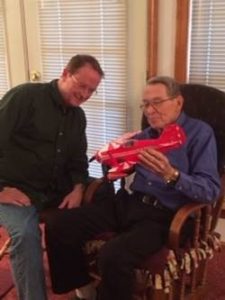Years ago a Sunday school student asked me for examples of modern day miracles. It was before Google. I was stumped, but managed to remember a few medical miracles I’d heard and read about. The student was clearly not satisfied with my answer. When I asked him what he thought, he quickly responded, “My mother says children are a miracle.” I wondered if she hadn’t been talking about the miracle of childbirth, but let it go.
These times beg for a miracle. Good news has been sparse as one disaster follows another. It’s hard to keep up with the hurricanes, floods and fires; earthquakes no longer make the front pages. The death toll of a mass shooting is as unnerving as the looming threats of war.
It’s hard not to feel guilty when reading the headlines, when looking at the pictures of people suffering on the front pages. It’s hard not to feel distraught, overwhelmed and helpless only to feel guilty again when we’re not directly impacted.
Around three o’clock, the local schools get out. Daily now, I find myself opening my office window a bit more to soak in the laughter, the audible excitement of catching up with friends, heading to the playground, a favorite after school activity or soccer game. Yesterday it struck me that I not only know some of these children, but that they were in Sunday School with me this past week as we tackled some tough subjects. I remember the girl who observed that with each disaster, we seem to forget the victims of the last disaster still struggling to recover. I recall the concern for the helpless animals in the voice of one child and the heartfelt confusion of another who asked what we are all wondering, why do bad things happen?
Then I think of the boy who approached his principal to start a drive to benefit the victims of Hurricane Maria. The girl whose science club is holding bake sales to raise money for climate change awareness. The girl’s friend who wants to learn how to build houses for those who lost theirs and the boy who now wants to become a traveling doctor. And that’s when I feel some glimmer of hope, that’s when I’m reminded that God speaks to us through others and that’s when I realize that Gabo was correct. Children are miracles, each and every one. We need to listen to them.
Julia

